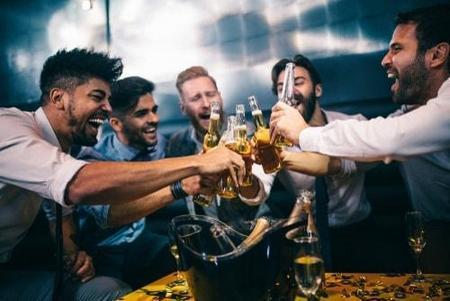Can You Hold a Business Liable for Intoxicated Person’s Negligence?
 It is general knowledge that driving drunk, public intoxication, and open containers of alcohol are against the law. Of course, people do not always follow the law, and unfortunately, with alcohol, this can lead to injuries of third parties, particularly in car accidents involving drunk drivers. Once a person reaches the age of 21, alcohol is readily available from bars, restaurants, liquor stores, and other establishments that have a valid license to sell these products. Selling products that are known to lead to injuries from negligent behavior is a big responsibility, and while most are aware that a personal injury lawsuit may be filed against an intoxicated wrongdoer, many States, including Illinois, have laws that impose liability on business establishments that supply the alcohol. These laws, known as Dram Shop Laws, are in place to prevent vendors who sell liquor from providing alcohol to intoxicated persons because this practice puts the general public at risk.
It is general knowledge that driving drunk, public intoxication, and open containers of alcohol are against the law. Of course, people do not always follow the law, and unfortunately, with alcohol, this can lead to injuries of third parties, particularly in car accidents involving drunk drivers. Once a person reaches the age of 21, alcohol is readily available from bars, restaurants, liquor stores, and other establishments that have a valid license to sell these products. Selling products that are known to lead to injuries from negligent behavior is a big responsibility, and while most are aware that a personal injury lawsuit may be filed against an intoxicated wrongdoer, many States, including Illinois, have laws that impose liability on business establishments that supply the alcohol. These laws, known as Dram Shop Laws, are in place to prevent vendors who sell liquor from providing alcohol to intoxicated persons because this practice puts the general public at risk.
A recent example of how this law may be used to hold a business liable appears in a lawsuit filed against a local bar in St. Clair County, Wisconsin. A woman traveling as a car passenger was injured in a crash by a driver who was intoxicated from alcohol served at the establishment. Dram Shop claims are more complicated than simple negligence claims, and an experienced personal injury attorney is needed to properly present them. A discussion of how this third-party liability is regulated in Illinois will follow below.
Proving the Vendor Was Responsible
Unlike other States, Illinois has a fairly broad Dram Shop Law, meaning the law is not overly stringent in assigning liability to third-party vendors. Under the Illinois statute, to hold a vendor legally responsible for an injury caused by an intoxicated customer, the plaintiff must show:
- The responsible party was intoxicated at the time of the accident;
- The vendor sold alcohol to the person who caused the injury before the accident occurred;
- The consumption of alcohol led to the intoxication; and
- The intoxication was a major cause of the accident that led to the victim’s injuries.
Importantly, the law does not require the defendant be visibly drunk when the alcohol was sold, just that the liquor was in fact provided.
Limitations on Recovery
While assigning liability is somewhat easier under Illinois Dram Shop requirements, that broad application is tempered by the limitations on financial recovery an injured plaintiff can collect from a vendor. The amount is adjusted every year in line with consumer inflation, and for 2018, the limits are:
- For claims that involve injury, death, or property damage, the limit of recovery per person is $68,777.44; and
- For claims related to loss of society or means of support due to an injury or death, the limit is $84,061.32 per incident.
In addition, social hosts, i.e., those who provide alcohol at a party or social event, are not subject to the Dram Shop Laws since they are not in the business of selling alcohol. An exception is made if the host provided alcohol to a minor, but generally, they are not responsible for injuries caused by guests. Further, Dram Shop Laws do not necessarily translate across State lines, and unless the neighboring State has a similar law, the vendor may be able to escape liability. Michigan has a similar law, but Wisconsin and Indiana do not, so the location of the accident is crucial, as is consulting with an experienced personal injury attorney.
Talk to a Lombard Personal Injury Attorney
Suffering an injury to another person’s negligence is hard to accept, and you should not have to bear the financial consequences of his/her actions alone. The experienced DuPage County personal injury attorneys at Mevorah & Giglio Law Offices handle a variety of personal injury claims, including those for car accidents and catastrophic injuries, and can help you hold the appropriate parties responsible for your suffering. Contact the office at 630-932-9100 for a free consultation.
 English,
English,
 Spanish,
Spanish,
 Polish,
Polish,
 Urdu
Urdu













 Make a Payment
Make a Payment



